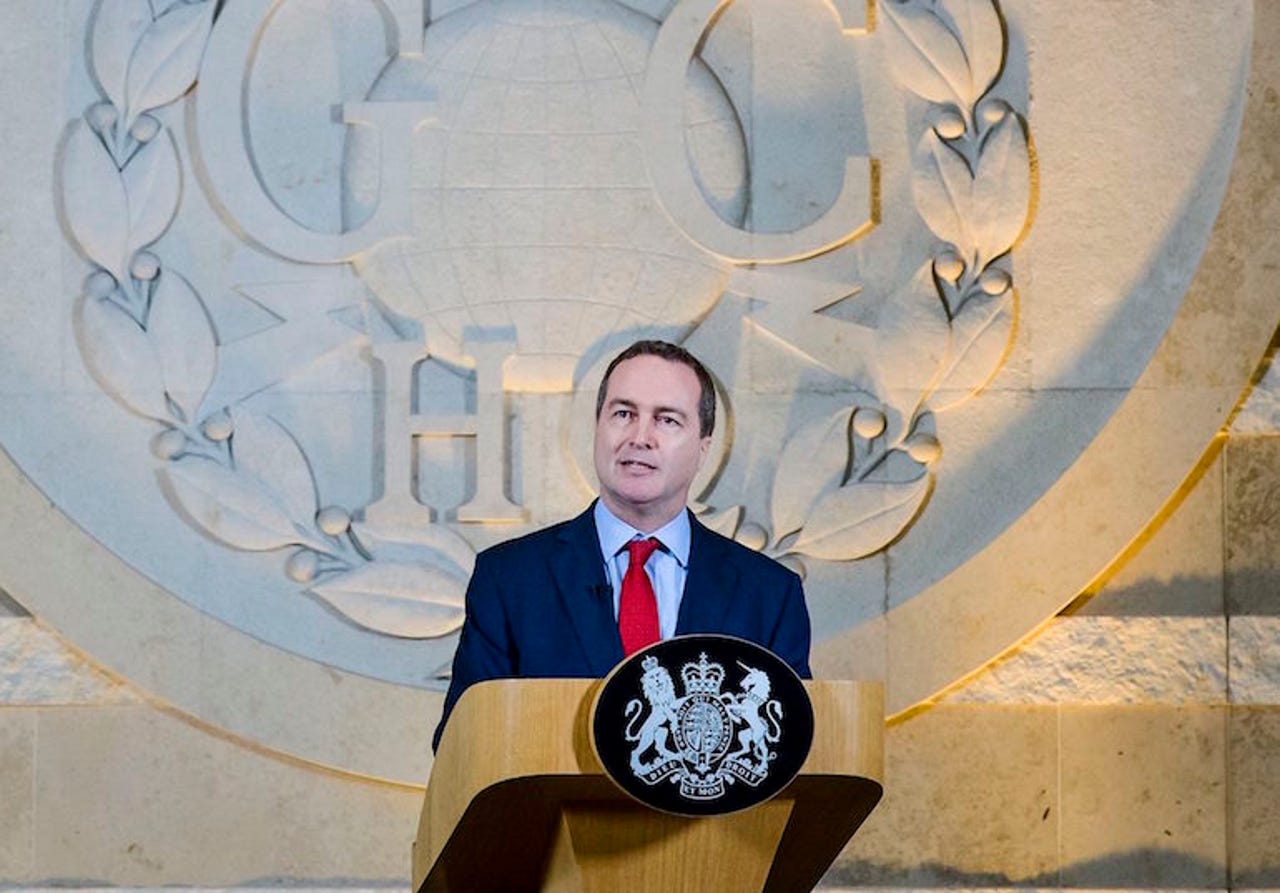GCHQ's encryption fix? Pass the buck to the lawmaker hellbent on killing it


GCHQ director Robert Hannigan speaks at the agency's headquarters in Cheltenham, UK, last month. (Image: Ben Birchall via Twitter)
Robert Hannigan, the director of GCHQ, the intelligence agency embroiled in the Edward Snowden disclosures, thinks a compromise can be reached over the use of end-to-end encryption.
But the spy agency boss said in a speech at MIT in Boston on Monday that it was for lawmakers and politicians to decide the "trade-offs" between security and privacy, and not the job for spy agencies or tech companies.
Hannigan himself admitted in part that the speech was a public relations exercise in a bid to smooth over comments he previously made, where he declared in a Financial Times' opinion piece that "privacy has never been an absolute right."
He walked back the remarks slightly, saying that members of government (and occasionally the courts) should be the ones to "decide the parameters of what is acceptable" of how far privacy should go.
"Since the trade-offs are for society as a whole, it must surely be for elected representatives to decide the parameters of what is acceptable," said Hannigan. "Within a transparent legal framework it is for those involved -- government agencies, tech companies, academia, civil society, to work out what is possible together. And of course it is for the Courts to monitor, test, and enforce compliance."
ZDNet's Steve Ranger has more on the story.
The comments couldn't come at a more crucial time, given the Apple-FBI debacle in the US, in which the tech giant refused to help federal agents break into the iPhone of one of the San Bernardino terrorists, arguing that the case would set a "dangerous precedent" down the line.
Hannigan does make a point: it's not for him and the spy agency to determine whether or not the law should apply to them. (How those laws are interpreted is a separate matter altogether.)
But it's easy for Hannigan to pass the buck on the encryption debate given that he's deferring responsibility to the home secretary, who for all intents and purposes wants to expand the agency's range of powers, all while Hannigan basks in a façade of meaningless accountability.
Take the so-called Investigatory Powers Bill, a draft law that Home Secretary Theresa May says aims to modernize the UK's surveillance powers.
GCHQ's signals intelligence gathering station in Bude, UK (Image: file photo)
A fair portion of the bill's criticism stems from accusations the bill was reverse-engineered, in that the existing patchwork of policies, interpretations, and existing tools and capabilities will finally be codified into a single piece of legislation.
The bill is a governmental exercise in clarifying a handful of vague and ambiguous proposals, but also one in expanding the scale of some GCHQ surveillance programs without any meaningful effort to reel them in.
For example, the bill -- if passed -- will resolve the government's encryption headache by simply mandating that companies remove it on-demand.
But chief among the more-recent complaints is that the bill was hastily rushed into the UK parliament with almost no changes, despite a lengthy review process from multiple parliamentary committees, and a wealth of written statements from members of the United Nations and some of the world's largest tech companies opposing the bill in its then-current form.
The few changes that were made were brazen beyond belief, and borderline insulting to those who were reading the final document.
Case in point: when one parliamentary oversight committee argued that the bill needed a new section to provide "universal privacy protections," the government simply added the word "privacy" to a heading in the bill's contents.
Civil liberties groups were highly critical of what were seen as largely "cosmetic tweaks," while others argued that the "powers are not lawful, nor necessary or proportionate." And the list goes on, from Amnesty International which said the bill was like "adding extra [stories] to a burning building" and Liberty, the Web Foundation, and more.
Even one of the members of the draft bill's parliamentary committee chimed in. Lord Strasburger, a Liberal Democrat, said in a blog post that "nothing has changed since I made my comments on the draft bill three weeks ago."
Time and taxpayer money went into the reviews in order to appease a growing public opinion that the government should not be given unfettered access to their data.
Whether or not lawmakers will accept the almost-negligible changes in the bill, it's clear that the home secretary will go to any effort to bypass and deflect any criticism against the crown jewel in her legislative legacy.
Hannigan spoke of needing "goodwill on all sides," but it's abdundantly clear that the elected officials who he puts his responsibility in shares does not share his same sentiment.